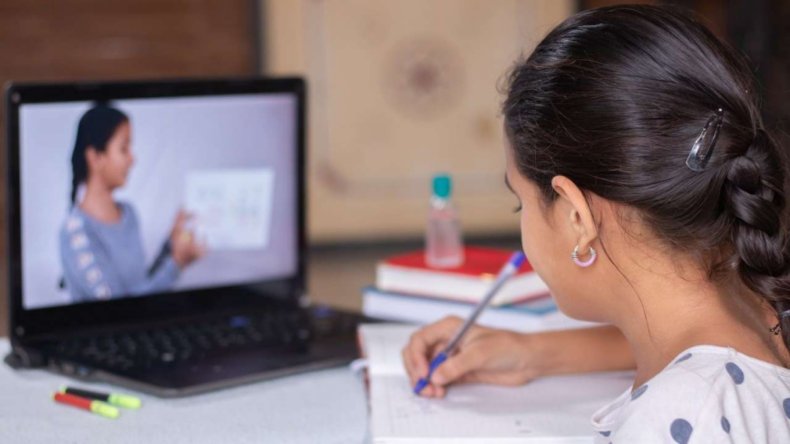This is a topic which is very close to my heart. Having graduated in what is being referred to as the “Corona Batch” in informal circles, I have faced severe problems with the issue of online education in the country.
As the world was gripped by the pandemic two years ago, colleges and schools rapidly followed the path of several other institutions and closed down, some for abnormally extended periods of time.
Thus began a system which can be described as partially effective but mostly torturous on students and teachers alike.
Rise Of Video Conference Apps
For one, the downloads of hitherto less used apps like Zoom and Microsoft Teams have gone through the roof.
Whereas earlier they were used only on select occasions when conducting a physical class or seminar became impossible, now every class in a majority of institutions is held on a video conferencing app.
The main argument given here is that it reduces the hassle of organizing social distancing or other such measures in case of physical events.
Also, online classes enable a person to join from anywhere at the appointed time without having to actually travel to the designation. It sounds like magic and works like magic too, but only for a certain amount of time.
After the first five months of impromptu holidays students began complaining of dizziness, headaches, problems with vision and a host of other illnesses due to constant exposure to a digital appliance. Some even suffered either earache or temporary loss of hearing because of the continuous blaring of sound through headphones.
In several metropolises like Kolkata, Mumbai and New Delhi many students developed a host of mental health problems like Obsessive Compulsive Disorder and Generalized Anxiety Disorder when faced with the seemingly bleak future prospects and morose state of affairs in the world.
Depression is still at an all time high and counselors are having a hard time dealing with the deluge of patients flooding their various clinics and hospitals.
The COVID pandemic may end in the near future but according to many experts both home and abroad, the damage to the national mental health that it has done will likely a decade or so to completely fade away.
Immense Problems
Another problem which is being raised prominently by teachers is that online classes are more or less a farce.
Circulation of a dozen PDF files and video or audio lectures, cutting out several chapters from the syllabus or not giving adequate attention because of the time constraint and exam schedules crunched to be brought much closer than they actually are.
These are all leading to teachers being unable to do what they love doing; teach effectively. Also, many all feel a distinct gulf between themselves and their students owing to the digital space.
That feel of standing before one’s students and lecturing them is one that can be replicated by any means no matter how advanced the technology and the exams . The lesser said the better about them.
I have absolutely no hesitation in divulging that throughout the last few exams of my undergraduate level and the first three semesters of postgraduate, I took help from the internet and my books.
Although the college had announced that the exams will all be open book, it still is a rather bitter draught to drink when it comes to staying true to oneself. This happens to be the case for more than half the students in India.
Laxity and sedentary lifestyles have ensured that concentration remains an ever elusive thing, while there is an alarming number of students who fail to crack competitive exams.
What remains to be seen is how difficult the withdrawal from online classes is when things finally go back to normal and students and teachers alike, even if they do not want to, have to go back to school. One can only hope, and keep their fingers crossed.













